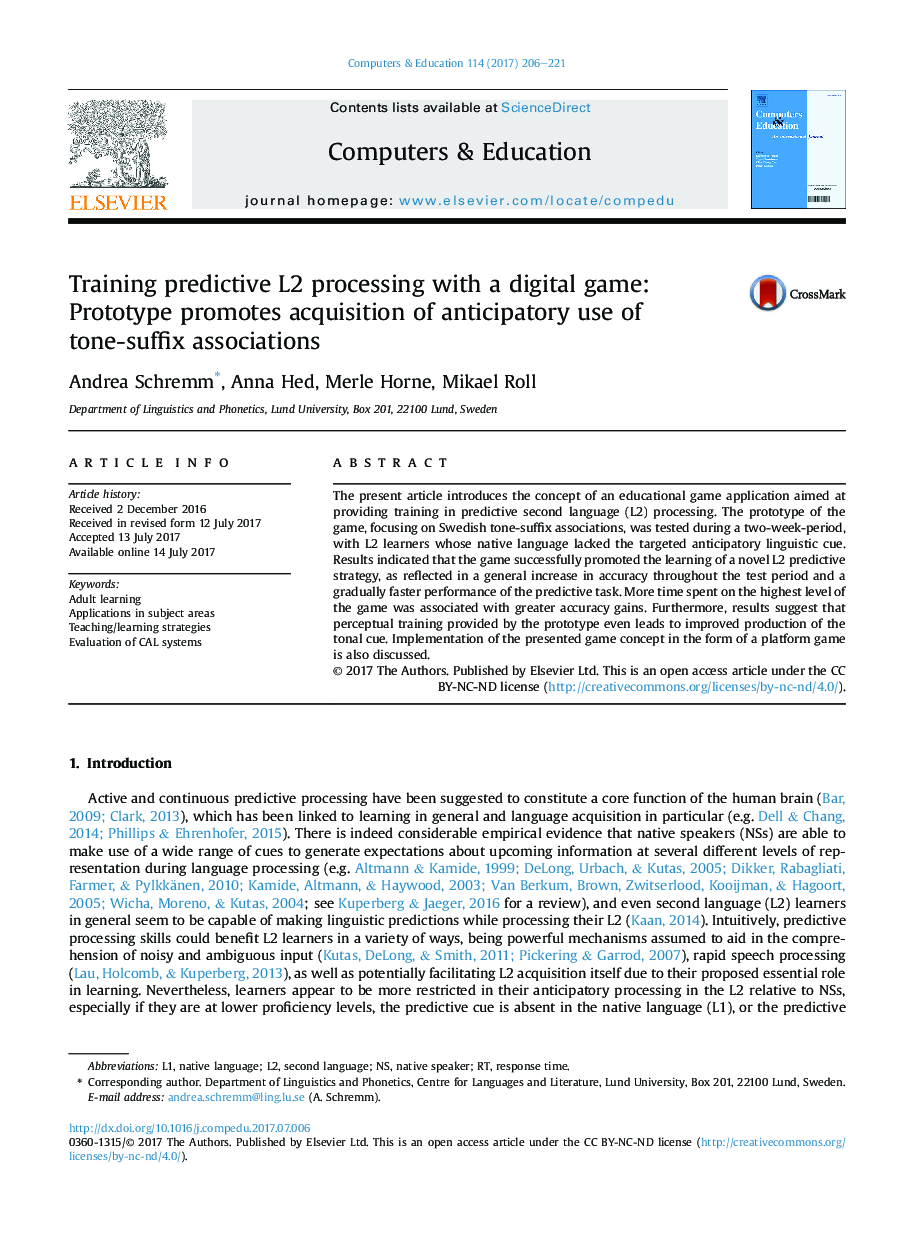| Article ID | Journal | Published Year | Pages | File Type |
|---|---|---|---|---|
| 4936819 | Computers & Education | 2017 | 16 Pages |
â¢Digital game concept promoting predictive second language processing is introduced.â¢Game mechanics are built around an assumed core process of language comprehension.â¢Second language learners of Swedish playing the prototype showed learning effects.â¢Learners became faster and more accurate at performing the predictive task.â¢Perceptual training improved even the production of targeted language feature.
The present article introduces the concept of an educational game application aimed at providing training in predictive second language (L2) processing. The prototype of the game, focusing on Swedish tone-suffix associations, was tested during a two-week-period, with L2 learners whose native language lacked the targeted anticipatory linguistic cue. Results indicated that the game successfully promoted the learning of a novel L2 predictive strategy, as reflected in a general increase in accuracy throughout the test period and a gradually faster performance of the predictive task. More time spent on the highest level of the game was associated with greater accuracy gains. Furthermore, results suggest that perceptual training provided by the prototype even leads to improved production of the tonal cue. Implementation of the presented game concept in the form of a platform game is also discussed.
